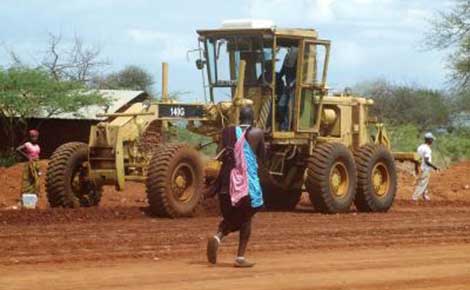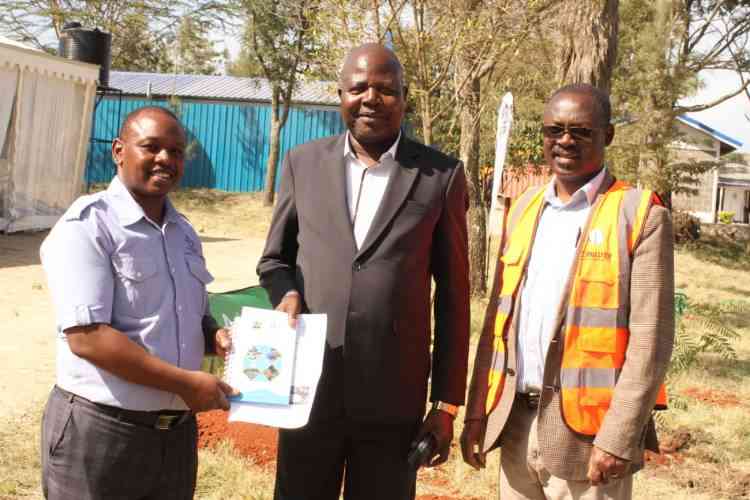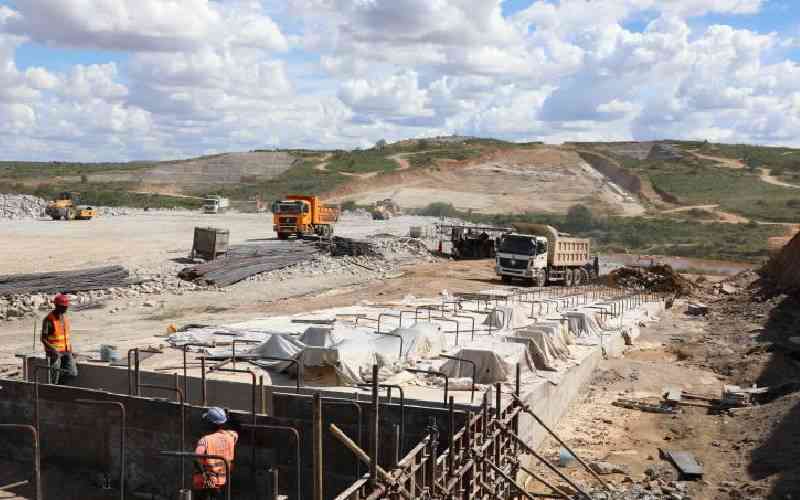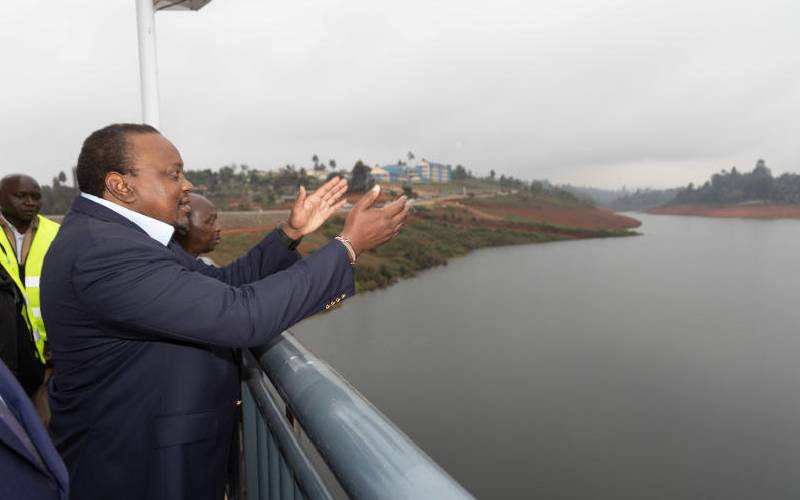 |
|
Workers gravel the main Mwatate-Taveta road. The Government is building infrastructure to maintain economic growth that may outpace the sub-Saharan African average. |
Nairobi; Kenya: Kenya may sell more debt for infrastructure after demand for the bonds on sale this month turned out to be more than double the amount offered, according to two traders in Nairobi.
The East African nation, which the African Development Bank estimates needs $4 billion (Sh356b) annually for projects from roads to water supply, sold Sh15.8 billion ($177m) of 12-year infrastructure bonds, the Central Bank of Kenya said on its website. Investors sought as much as Sh38.8 billion in the offer of Sh15 billion, it said.
“The bids were very high so we obviously expect them to tap the bond within the next month,” Alexander Muiruri, Head of Fixed-income trading at Nairobi-based Kestrel Capital (East Africa) Ltd, said by phone yesterday. “They took a small amount because probably they wanted to have a lower yield.”
The weighted average rate was 11.26 per cent and the bonds had a fixed coupon of 11 per cent, the Central Bank said. The Government is building infrastructure to maintain economic growth that may outpace the sub-Saharan African average.
The sale is part of a plan to raise Sh35 billion through infrastructure bonds in the fiscal year through June, the Central Bank said in an undated statement e-mailed on October 14 that announced the start of the debt sale. “At Sh15.8 billion we still have more room and certainly there will be a tap,” Stanslaus Kimani, a fixed-income trader at Nairobi-based African Alliance Kenya Investment Bank Ltd, said by phone.
Kamau Thugge, principal secretary in the National Treasury, didn’t answer calls seeking comment yesterday. Kenya’s economy is projected to grow 5.3 per cent this year, compared with the regional average of 5.1 per cent, according to the International Monetary Fund’s regional outlook released this week.
Last month, Kenya revised its gross domestic product calculation, boosting the size of the economy by a quarter to $55.2 billion.
Local-currency Kenyan debt returned 8.6 per cent this year, compared with 6.4 per cent average among 31 emerging markets tracked by Bloomberg indexes. Yields on 12-year infrastructure bonds sold last year and due September 2025 were unchanged at 10.99 per cent by noon yesterday.
With seven per cent of roads paved, power prices higher than neighbouring nations and only 15 per cent of available water resources developed, spending on infrastructure has “the potential to help transform the economy”, the bank said in a report released in February.
Investors in the country’s debut Eurobonds, sold in June, were warned in the prospectus that a “failure to significantly improve Kenya’s infrastructure in order to support growth in the key sectors of its economy may constrain Kenya’s overall economic growth”.
New railway
Projects such as the construction of a new railway from the port of Mombasa to the border of Uganda and a second international harbour in Lamu will accelerate growth in government investment by 30 per cent in 2016-17 compared with 16 per cent in the current fiscal year through June, according to the Nairobi-based Parliamentary Budget Office.
The Government targets narrowing its “consistently high” budget shortfall to 8 per cent of gross domestic product this year from 10 per cent in 2013-14, the office said in a report last month.
Before the current bond issue, the government sold five infrastructure bonds since 2009, according to the budget office. The last sale in October 2013 raised 16 billion shillings of 12-year securities at an average yield of 12.36 per cent in an auction that attracted more bids than supply.
Eurobond Sale
The State has also sought financing for capital projects on the international markets by raising $2 billion in five-year and 10-year notes during its debut Eurobond sale in June. The portion maturing in 2024 carried a 6.875 per cent interest rate.
Stay informed. Subscribe to our newsletter
While presenting 2014/15 financial year budget, Cabinet Secretary Henry Rotich said the Government plans to finalise financing in the new financial year for a second stage of a new standard gauge railway between Nairobi and the Ugandan border. The new line will replace a slower, narrow gauge line built in the 19th century.
He said three new airports would be built at Malindi in the Coast, Mandera in the north and Suneka in the western part of the country. The road network will also be expanded.
 The Standard Group Plc is a
multi-media organization with investments in media platforms spanning newspaper
print operations, television, radio broadcasting, digital and online services. The
Standard Group is recognized as a leading multi-media house in Kenya with a key
influence in matters of national and international interest.
The Standard Group Plc is a
multi-media organization with investments in media platforms spanning newspaper
print operations, television, radio broadcasting, digital and online services. The
Standard Group is recognized as a leading multi-media house in Kenya with a key
influence in matters of national and international interest.
 The Standard Group Plc is a
multi-media organization with investments in media platforms spanning newspaper
print operations, television, radio broadcasting, digital and online services. The
Standard Group is recognized as a leading multi-media house in Kenya with a key
influence in matters of national and international interest.
The Standard Group Plc is a
multi-media organization with investments in media platforms spanning newspaper
print operations, television, radio broadcasting, digital and online services. The
Standard Group is recognized as a leading multi-media house in Kenya with a key
influence in matters of national and international interest.









